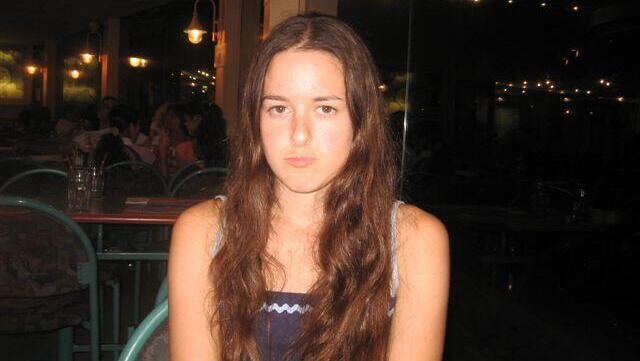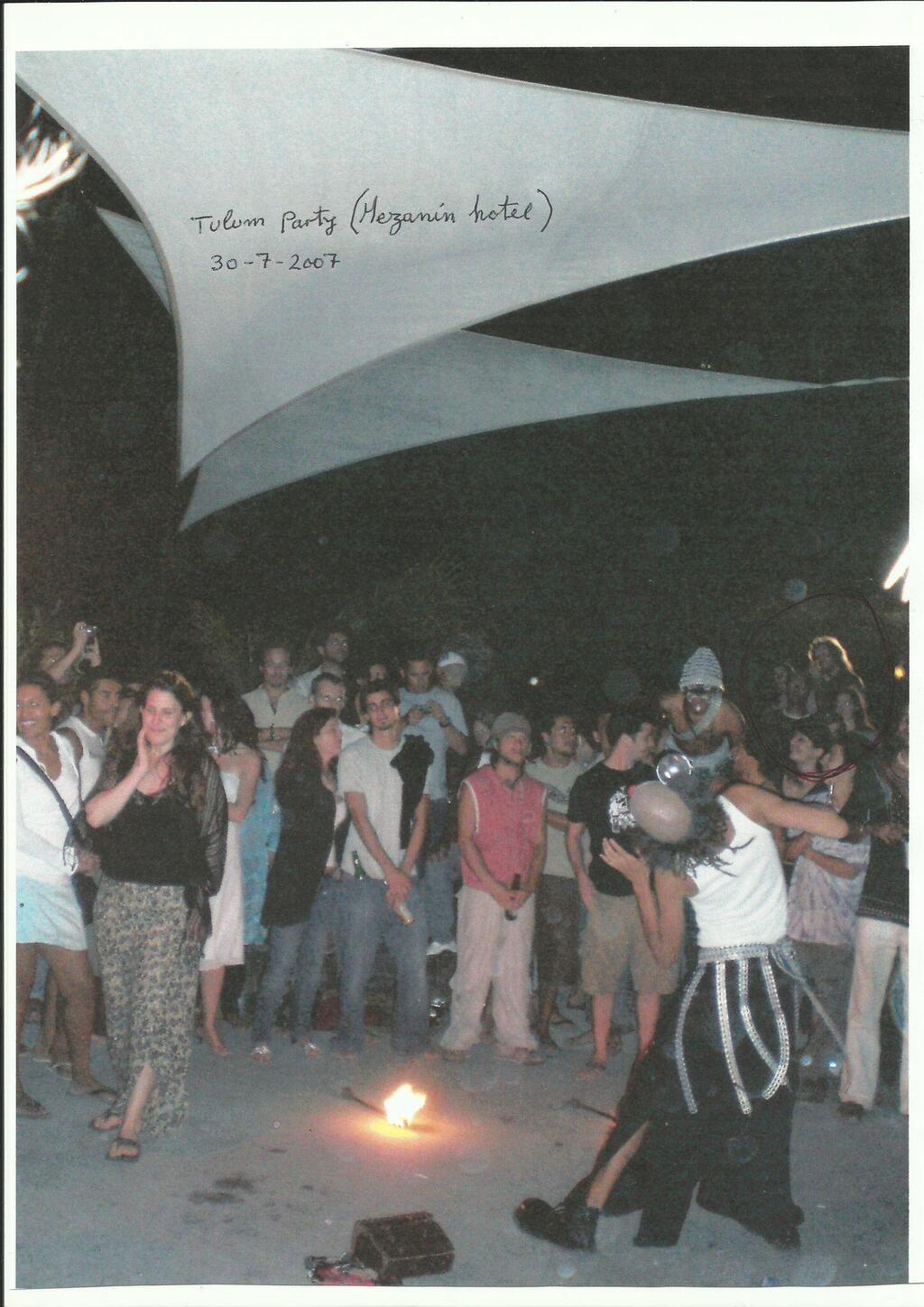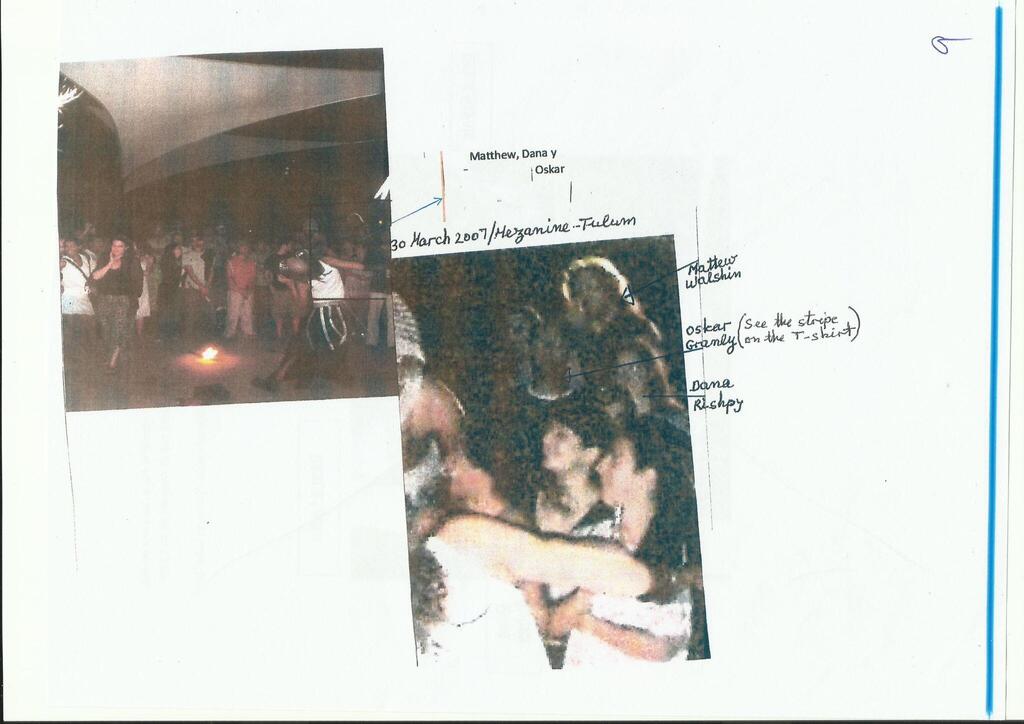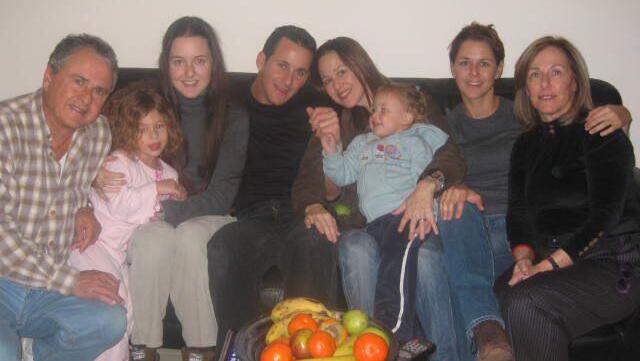On the night of March 30, 2007, 25-year-old Dana Rishpy disappeared during a short trip to Mexico. What was meant to be a 10-day vacation turned into one of the most troubling mysteries involving missing Israelis abroad. Seventeen years later, her family is still searching for answers.
“Dana was strong-willed from a young age, with a unique personality,” says her sister, Dalit Rishpy-Tor, 57. “She was a beautiful woman who starred in ads, but beyond her exterior beauty, she had a special soul. Talented in animation and voiceover, she loved music and knew countless bands and musicians.”
“She chose to become a vegetarian from a young age, was sensitive to animal rights and picked up running in a sports team. She released a song, directed a music video and was filled with passion for creativity,” she added.
A spontaneous decision that changed everything
Dana hadn’t originally planned to visit Mexico. “Dana traveled to the United States for a month to explore animation studies,” Dalit recalls. “In Los Angeles, while staying with relatives, she saw an ad in a newspaper for a deal to Cancun and Mayan sites. She had a return ticket to New York a week after she disappeared.”
Rishpy, who held both Israeli and German citizenship, arrived in Cancun on March 26. On March 28, she sent her family what would be her last email: “I landed in Cancun and arrived at a really nice hostel,” she wrote.
“I’ve met some very nice people – two French guys and a German. I went out with the German one to explore Cancun’s stunning beaches.” She attached several photos and showed no signs of distress in her writing.
Two days later, on March 30, Rishpy boarded a bus to the town of Tulum. At the Playa del Carmen station, three men joined her and began talking to her. Upon arriving in Tulum, one of them, an American named Matthew Walshio, invited her to leave her belongings in a room he had rented at the Caribbean Sea hotel. The three men suggested she join them at the Mezzanine club, where a performance was scheduled for that evening.
About two weeks after Dana’s disappearance, her parents – who were traveling through national parks in Argentina at the time – received a mysterious email from Walshio. “He wrote that Dana’s bags were with him in a hut on the beach, that she had woken up in the morning, said she was going to see the Mayan ruins and never returned,” Dalit recalls. She received the news in the middle of her 40th birthday celebration.
Three suspects, no answers
A detailed journal documented her life and final days in the bag Dana left behind. Through its pages, vital details about the men she encountered came to light. Among them, Matthew Walshio’s profile emerged as particularly troubling.
The investigation revealed his criminal past, which included drug trafficking and rape accusations. Days after Dana’s disappearance, realizing he was being looked for, Walshio hurriedly flew back to the U.S.
The second suspect, Oscar Granelli, a Norwegian citizen, was seen on club security cameras sitting with Dana during the performance. According to testimony from an Israeli tourist present, Granelli was seen leaving the party with Dana at 1:30 a.m., with his arm around her shoulder, saying, “Come on, baby.”
Granelli, believed to be the last person to see Dana, now also lives in the U.S. Meanwhile, their friend, Gary Almedal, stayed in Mexico and settled in Tulum.
Determined not to give up, Dana’s family hired private investigators who managed to locate photos from the party and focused suspicion on the three men. However, the gathered evidence – photos from the event and testimonies from Israeli witnesses – were never pursued by the local police, who dismissed the findings, claiming they were obtained privately.
The FBI’s involvement was limited to a brief conversation with Walshio, who chose to remain silent. The Norwegians were never questioned due to a bureaucratic error after they were identified as Swiss in Dana’s journal.
The family used every possible avenue – working with the Foreign Ministry, military attachés, insurance teams and law enforcement. They appealed directly to the then-foreign minister, involved Interpol and immediately provided DNA samples.
Searches were conducted with the help of police dogs, flyers were distributed and billboards were put up. They reached out to the governor of Mexico, the president, Jewish communities, Israeli companies and businesspeople. Yet, nothing yielded results.
In September 2013, six years after Dana’s disappearance, the family thought there might be a glimmer of hope. The Israeli consul and a Defense Ministry attaché met with the head of the Mexican federal police’s missing persons unit, Salomon Baltazar.
“Police in Mexico aren’t really a proper police force,” Dalit says. “Thousands of people disappear there every day and they couldn’t understand why we were making such a fuss. Each time a body was discovered in the area, the pain resurfaced.
“Some people said they’d seen or heard something, but there was never anything concrete. What’s more, Dana was there for such a short time before disappearing that not many people had the chance to meet her. A year later, a terrible storm hit the area and everything was affected. It’s a place where you could make an entire country disappear.”
The family left behind
“My sister and I asked for Dana for my 15th birthday,” Dalit recounts. “Because of our age gap, I treated her as a mother would.” This special connection carried on, and in 2008, a year after Dana’s disappearance, both Dalit and her sister gave birth to their third child.
“We experienced crises as a family because everyone reacts differently,” she adds. “I answered emails, gave interviews to the media and approached every important person I could. My sister is more introverted and my brother lives in Spain. My parents, their suffering is indescribable. They have four children and suddenly one of them is gone.”
Seventeen years later, the pain and hope remain intertwined. “If there’s ‘closure,’ you know it was just ‘bad luck,’” Dalit says. “But without closure, you see someone who reminds you of her and think, ‘Wow,’ or you dream about her or hear about people who returned home after years.”
The void is particularly intense on certain dates, such as the day of Dana’s disappearance, or her birthday at the end of May. “We think about how old she would be now, what she could’ve achieved. When her friends get married or have children, when the kids mention her and ask about her. The loss is in how we carry on while she’s not here.”
The latest trigger was on October 7. “The uncertainty hostages’ families are experiencing is maddening and I’m doing everything I can to support them,” Dalit says. “Not knowing what happened to their child, their sibling, or loved ones is a nightmare for them.”
Never giving up hope
Dana’s absence is deeply felt and doesn’t fade, even after 17 years. “There’s no way she disappeared willingly,” Dalit declares. “She loved life, she loved her parents dearly, lived with them and didn’t want to leave. She adored her nieces and nephews. She had plans to study. She only wanted to take a short trip.”
“There’s always hope, even after all these years and that’s why I’m speaking out,” Dalit says. “Maybe tomorrow someone will see this article and remember spotting a confused girl in Mexico who didn’t know who she was.”
She pauses, and adds, “I’m not naïve or imagining things, but there’s still this hope that one day a miracle will happen and she’ll show up. She could’ve had a brilliant future – professionally, personally, and as a mother and aunt. She had her whole life ahead of her.”
“She encountered the wrong people in the wrong place and was too innocent to see the danger,” Dalit says. “There were times I imagined, even dreamed, that she returned and I hugged her. Unlike other families who experienced crises, there was no crisis here — she was just stepping into life, into independence, with the whole world ahead of her. She only had to choose.”
Get the Ynetnews app on your smartphone:









